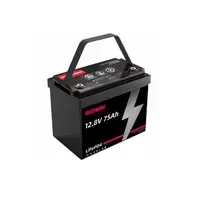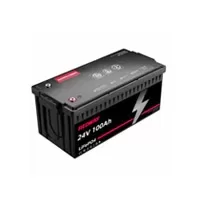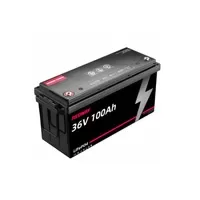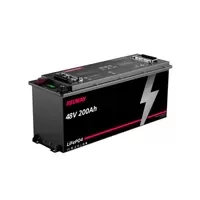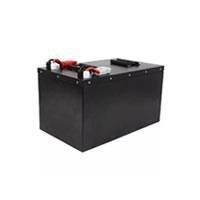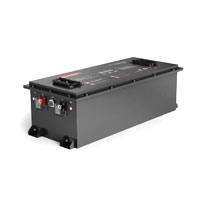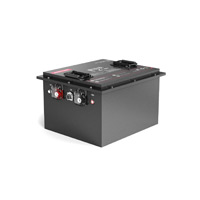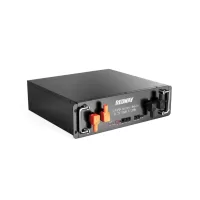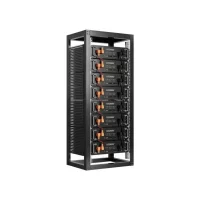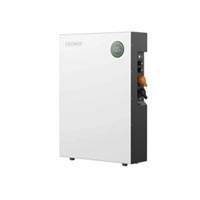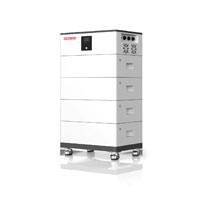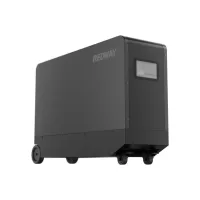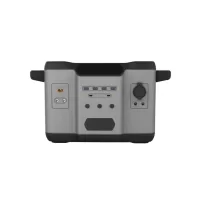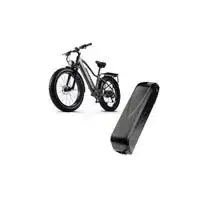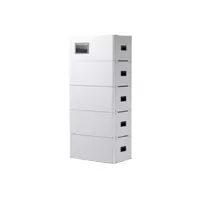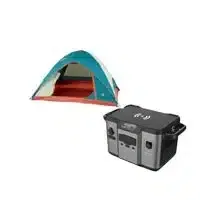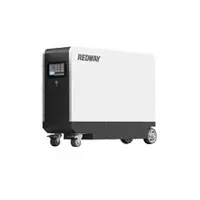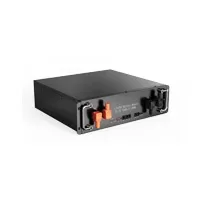Are you wondering if your daily energy consumption is considered high or low? Do you find yourself scratching your head when looking at that number on your electricity bill? Well, fret not! In this blog post, we’re going to dive deep into the world of energy usage and answer one burning question: Is 30 kWh per day a lot? Whether you’re a homeowner trying to keep those bills down or simply curious about how much energy we consume on a daily basis, stick around as we break it all down for you. So let’s get started and shed some light on this electrifying topic!
Understanding Energy Usage
Understanding Energy Usage
Energy usage refers to the amount of energy consumed by an individual, household, or business over a specific period. It is measured in kilowatt-hours (kWh), which represents the amount of energy used when a device with a power rating of one kilowatt operates for one hour.
To put it into perspective, imagine leaving a 100-watt light bulb on for 10 hours – that would consume 1 kWh of electricity. Now think about all the appliances and devices we use daily – from refrigerators and air conditioners to televisions and laptops – each drawing varying amounts of power.
But what exactly does this mean in terms of daily energy consumption? Well, on average, households in the United States consume around 30 kWh per day. However, it’s important to note that this number can vary significantly depending on various factors such as family size, lifestyle habits, climate conditions, and home efficiency.
Factors such as geographical location also play a role in energy consumption. For example, households located in areas with extreme temperatures may require more heating or cooling throughout the year compared to those living in moderate climates.
Another significant factor is the age and efficiency level of your appliances. Older models tend to be less efficient than newer ones due to advancements in technology. Upgrading to Energy Star certified appliances not only helps reduce your carbon footprint but can also lower your overall energy usage.
While understanding how much energy you’re consuming is essential for managing costs and reducing environmental impact, it’s equally crucial to know how you can calculate your own energy usage accurately.
Stay tuned as we delve deeper into ways you can determine your personal energy consumption!
Average Energy Usage in the United States
In the United States, energy usage varies widely across different households and regions. However, on average, a typical American household consumes around 900 kilowatt-hours (kWh) of electricity per month. This equates to an average daily energy usage of approximately 30 kWh.
It’s important to note that this figure is just an estimate and can vary depending on various factors such as the size of the house, number of occupants, appliances used, climate conditions, and individual habits. For example, homes with large families or those that heavily rely on energy-intensive appliances like air conditioners or electric heaters are likely to have higher energy consumption.
Additionally, geographical location plays a significant role in determining energy usage. States with extreme weather conditions may require more heating or cooling efforts resulting in increased electricity consumption.
Understanding your own energy consumption is crucial for managing your utility bills and reducing your environmental impact. By conducting an audit of your home’s appliances and identifying areas where you can make efficiency improvements—such as upgrading to Energy Star-rated devices or implementing better insulation—you can decrease your daily energy consumption.
By being mindful about turning off lights when not in use, unplugging electronics when they’re not needed,and utilizing natural lighting whenever possible,you can also contribute towards lowering your overall electricity consumption.
Remember though- it’s essential not only to focus on reducing personal energy use but also promoting sustainable practices at a larger scale by supporting renewable energies and advocating for smart grid technologies.
So while 30 kWh per day might seem high compared to some other countries’ averages,it is relatively normal within the context of U.
S.energy usage patterns.
However,it doesn’t hurt to find ways to reduce our daily consumption both for financial savings and environmental benefits!
Factors that Affect Daily Energy Consumption
Factors that Affect Daily Energy Consumption
There are several factors that can impact your daily energy consumption. One of the main factors is the size and layout of your home. Larger homes typically require more energy to heat, cool, and power compared to smaller homes. Additionally, the number of occupants in your home plays a role in energy usage as well.
Another factor to consider is the climate you live in. If you reside in an area with extreme temperatures, such as very hot summers or cold winters, it’s likely that your heating or cooling systems will be running for longer periods of time, leading to higher energy consumption.
The age and efficiency of appliances and electronics also affect daily energy usage. Older appliances tend to be less efficient compared to newer models, which means they consume more electricity. Upgrading to Energy Star certified appliances can help reduce energy consumption significantly.
Your lifestyle habits also play a part. For example, leaving lights on when not needed or keeping electronic devices plugged in when not in use can contribute to unnecessary energy waste.
Rates charged by utility companies vary depending on location and time of day. Some areas have peak hours where electricity costs more than during off-peak hours.
Understanding these factors can help you identify areas where you may be able to reduce your daily energy consumption and make more informed choices about how you use electricity throughout the day.
How to Calculate Your Own Energy Usage
Calculating your own energy usage is an important step in understanding how much electricity you consume on a daily basis. By knowing this, you can make more informed decisions about reducing your energy consumption and ultimately saving money.
To calculate your energy usage, start by checking your utility bill. It will typically provide information on the total kilowatt-hours (kWh) of electricity used during a specific billing period. Divide this number by the number of days in that period to get an average daily usage.
Another way to calculate your energy usage is by using an energy monitoring device. These devices can be installed in your home and track real-time electricity consumption for individual appliances or circuits. This allows you to identify which appliances are using the most energy and adjust accordingly.
Keep in mind that factors such as household size, climate, and lifestyle choices can also impact your energy usage. For example, larger households with more people will naturally have higher electricity demands compared to smaller households.
Once you have calculated your current energy usage, it’s time to assess whether 30 kWh per day is a lot for you personally. Compare it to the average daily energy consumption in the United States which stands at around 28 kWh per day according to data from the U.
S Energy Information Administration (EIA). If your usage exceeds this average significantly, it may be worth considering ways to reduce it.
Reducing your energy consumption doesn’t necessarily mean sacrificing comfort or convenience. There are simple steps you can take like switching to LED light bulbs, turning off lights when not in use, unplugging electronics when they’re not being used or utilizing power strips with built-in timers or switches.
Furthermore, upgrading old appliances with new models that are ENERGY STAR certified can significantly decrease their power draw without compromising functionality.
Incorporating small changes into our everyday lives can add up over time and make a big difference both environmentally and economically! So take some time today to calculate your own energy usage and make a commitment to reduce it. Your wallet and the planet will thank
Is 30 kWh Per Day a Lot?
Is 30 kWh per day a lot? It’s a question that many people may find themselves asking when trying to gauge their energy consumption. Understanding how much energy you’re using and what is considered “normal” can help you make informed decisions about your usage habits.
Energy usage varies depending on several factors, such as the size of your home, the number of occupants, and the appliances you use. On average, homes in the United States consume around 877 kWh per month or approximately 29 kWh per day. So, if you’re using around 30 kWh per day, it falls within the typical range.
However, it’s important to note that there are ways to reduce your energy consumption even further. Simple adjustments like turning off lights when not in use or unplugging electronics can add up over time. Investing in energy-efficient appliances and implementing smart thermostats can also help lower your daily energy usage.
Calculating your own energy usage is relatively simple. Start by checking your utility bill for the total monthly kilowatt-hour (kWh) usage. Divide this number by the number of days in that billing cycle to get an average daily usage figure.
While 30 kWh per day might seem like a reasonable amount for most households, it could still be worth exploring ways to cut back on unnecessary electricity consumption. Not only will reducing your energy footprint have positive environmental impacts but it can also lead to significant savings on your utility bills over time.
So whether you consider 30 kWh per day a lot or not depends on various factors unique to each household’s circumstances. Regardless of where you fall on this spectrum, making conscious efforts towards more sustainable and efficient practices is always encouraged
Ways to Reduce Your Energy Consumption
Ways to Reduce Your Energy Consumption
1. Upgrade your appliances: One of the most effective ways to reduce your energy consumption is by upgrading old, inefficient appliances with newer, energy-efficient models. Look for appliances that are ENERGY STAR certified, as these meet strict efficiency standards and can significantly lower your electricity usage.
2. Adjust thermostat settings: Another simple way to save on energy costs is by adjusting your thermostat settings. During the winter months, set your thermostat a few degrees lower and wear warmer clothing or use blankets to stay comfortable. In the summer, raise the temperature a few degrees and utilize fans or natural ventilation whenever possible.
3. Unplug electronics when not in use: Many electronic devices continue to consume power even when turned off or in standby mode. To prevent this “phantom” energy usage, unplug electronics such as televisions, computers, and gaming consoles when they’re not being used.
4. Use LED lighting: Traditional incandescent light bulbs consume much more energy than their LED counterparts. By switching to LED lights throughout your home, you can significantly reduce both your electricity usage and utility bills.
5. Insulate windows and doors: Proper insulation around windows and doors helps prevent heat loss during colder months and keeps cool air from escaping in warmer weather. This reduces the need for excessive heating or cooling systems operation which ultimately saves energy.
6.
Make use of natural light: Utilizing natural light instead of artificial lighting during daylight hours can greatly reduce your reliance on electricity-consuming lights while also providing numerous health benefits like improved mood and productivity.
By implementing these strategies into your daily routine, you can make a significant impact on reducing your overall energy consumption without sacrificing comfort or convenience!
Conclusion
Conclusion
Understanding your daily energy usage is important for both financial and environmental reasons. While the average energy usage in the United States is around 30 kWh per day, it may vary depending on factors such as the size of your home, number of occupants, climate conditions, and lifestyle choices.
Calculating your own energy usage can help you identify areas where you can make changes to reduce consumption. By adopting simple habits like turning off lights when not in use, using energy-efficient appliances, properly insulating your home, and adjusting thermostat settings wisely, you can significantly lower your energy consumption.
Remember that every small step counts towards conserving resources and reducing greenhouse gas emissions. Not only will this have a positive impact on the environment but it will also save you money on utility bills in the long run.
So take charge of your energy usage today! Make conscious efforts to be more mindful about how much electricity you are consuming each day. With a little effort and awareness, we can all contribute to a more sustainable future while enjoying the comforts of our homes.


